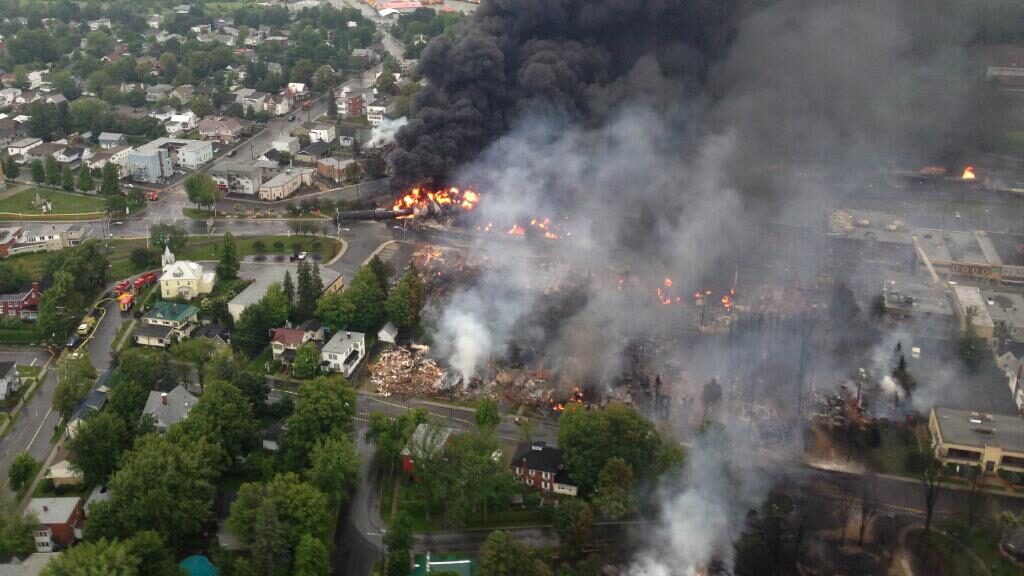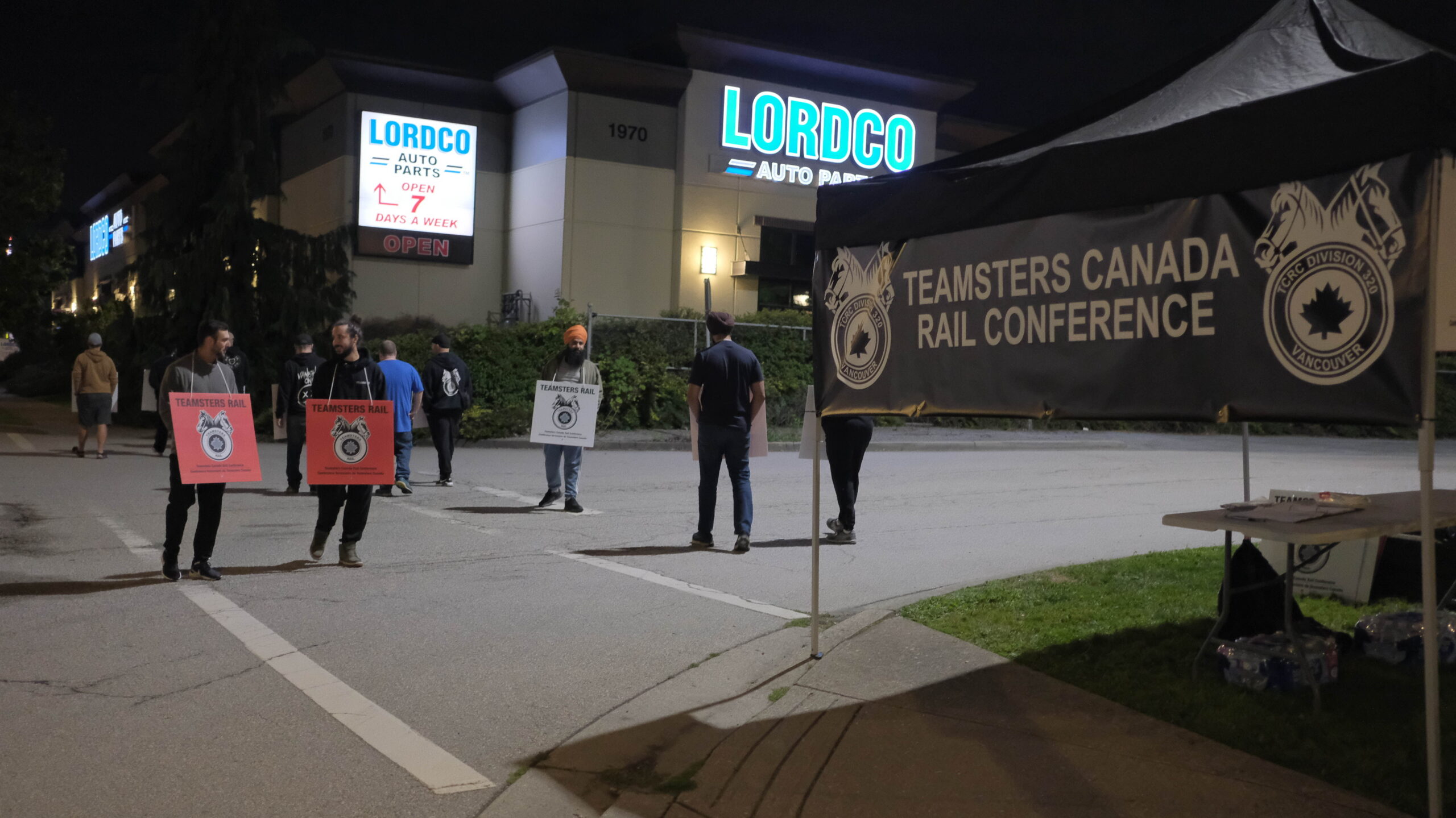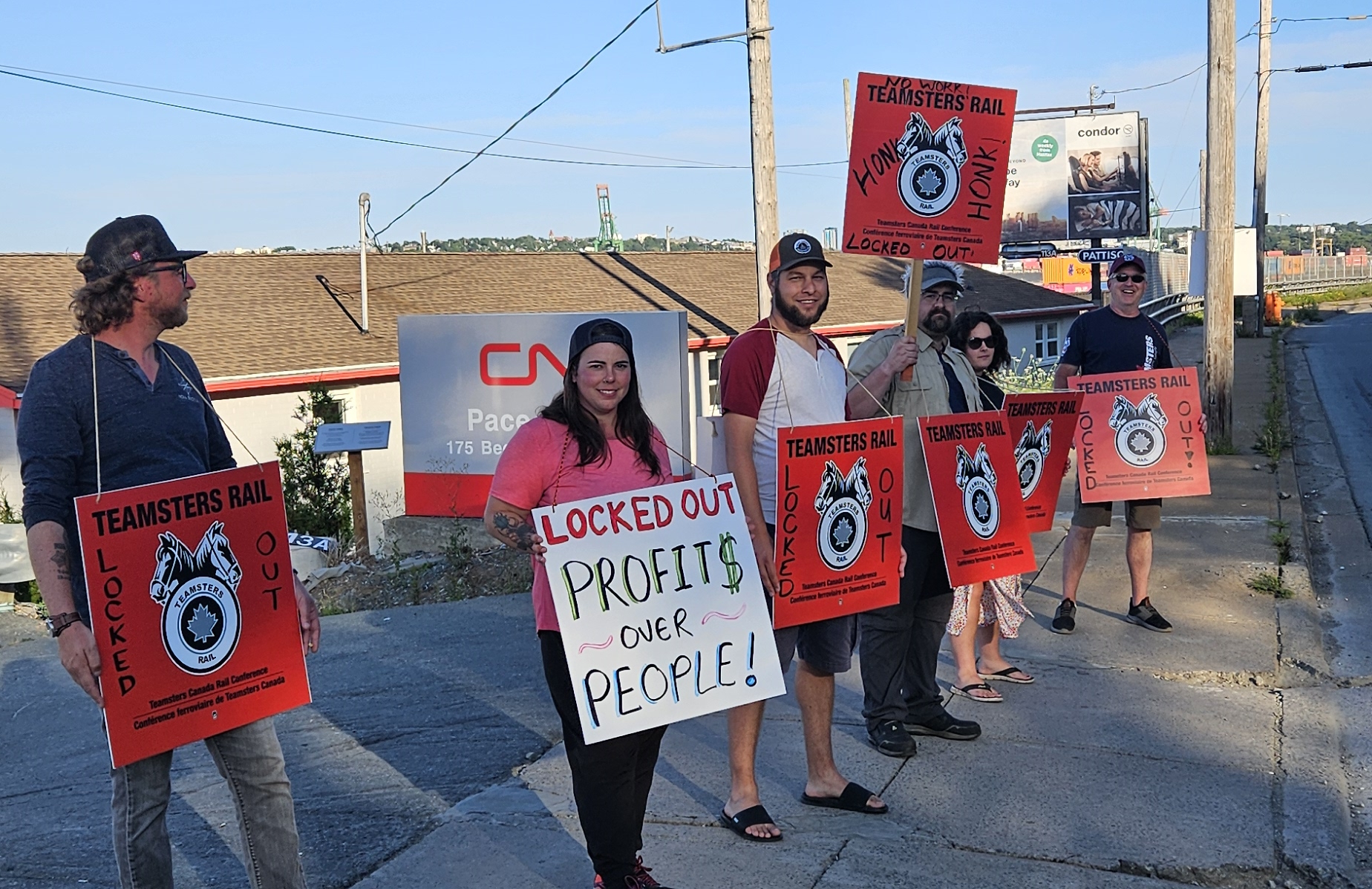For the Canadian government, it’s a disaster averted. For rail workers, it’s a shameful decision. Yesterday evening, after less than a day of rail lockout, the federal Minister of Labour has ended any possibility of workers forcing their management to listen to them.
Workers had announced last week that they were considering strike action to put pressure on Canadian Pacific (CPKC) and Canadian National (CN). In an attempt to keep control of the situation, they responded on Wednesday night with a forced work stoppage for workers.
Late yesterday, the Trudeau cabinet’s top labor relations official, Steven MacKinnon, went to the Canada Industrial Relations Board (CIRB) to impose binding arbitration, a decision the union said was a “betrayal” of workers’ rights.
To avoid another Lac-Mégantic
Paul Boucher, president of the Teamsters Canada Rail Conference, explained wednesday that “throughout this process, CN and CPKC have shown themselves willing to compromise rail safety and tear families apart to earn an extra buck.”
The union denounced that the only points blocking the signing of a new agreement were the demands of the major conglomerates. “Their sole focus is boosting their bottom line, even if it means jeopardizing the entire economy.”
The months-long conflict centers on the issue of safety. The monopolists at CN and CPKC have both been trying for months to force their workers to abandon clauses in their collective agreements guaranteeing them already limited rest. In addition, they are seeking to force workers to relocate according to the needs of the industry.

“We don’t want to see another Lac-Mégantic accident,” said Teamsters President François Laporte, adding that he wanted to see rested people driving trains. “In Montreal, downtown, for example, and everywhere across the country [you] see trains passing by carrying chemical products, energy, oil.”
Federal intervention
Faced with the stoppage of rail operations, Ottawa was quick to intervene. Minister Steven MacKinnon used section 107 of the Labour Code to force the parties to accept binding arbitration, thereby ordering the suspension of the picket lines.
To justify himself, Mr. MacKinnon claimed that the government was neutral and that it was untenable that two major railways could not operate.
Yet, “by resorting to binding arbitration, the government has allowed CN and CPKC to sidestep a union determined to protect rail safety,” said Boucher. “Despite claiming to value and honour the collective bargaining process, the federal government quickly used its authority to suspend it, mere hours after an employer-imposed work stoppage.”
According to the president of the Rail Conference, “he two major railways in Canada manufactured this crisis, took the country hostage, and manipulated the government to once again disregard the rights afforded to working-class Canadians.”

He added: “The Teamsters Canada Rail Conference (TCRC) is deeply disappointed by this shameful decision. The government took this unprecedented step, using this seldom utilized section of the labour code, only because they knew their minority could not gather the support needed to pass a legislated resolution to appease the railways.”
The Teamsters Union says it intends to study the reference to the CIRB, the CIRB’s response, and consult its lawyers to determine a course of action. It has also announced that it will maintain its picket lines on the CPKC side of the line, against the wishes of the government and the railroads, who want operations to resume as early as Sunday.
On Friday, the Teamsters announced that they had served a notice for a 72 hour strike, starting at 10am on Monday.
